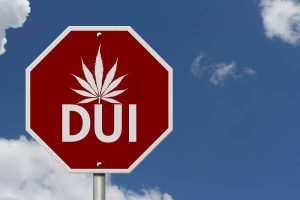
DUI cases have numerous essential deadlines to meet, and one important one that defendants do not realize is their driver’s license case. The case for keeping your license is entirely separate from your criminal charges. First, the court does not oversee your driver’s license. Instead, it is the Motor Vehicles Division (MVD) who determines if your license is suspended or revoked. Furthermore, the New Mexico Implied Consent Act could determine if you were able to keep your license if you refuse a BAC test.
How Your Criminal Case and Driver’s License Case Differ
While both are related, they remain apart from one another. The MVD suspension or revocation can still happen even if you are acquitted of your DUI charges or the case is dismissed. Likewise, your license may be tied to the outcome of your case when convicted. Therefore, you need to understand how one or the other influences each side, but also how they differ.
Your Revocation Hearing at the MVD
Once you are arrested and officially charged with a DUI in New Mexico, you have a strict ten days to appeal a revocation. You must file your “Request for Hearing” with the MVD regarding your driver’s license revocation in those ten days or you will have no right to appeal.
The application requires a non-refundable $25 fee, and the form is located on the MVD website. Your attorney can also help you find these forms.
If you do not file within those ten days, you will have an automatic revocation of your driver’s license.
What Happens at the Revocation Hearing If I File in Time?
If you file your request for a hearing in time, you will appear at the MVD and present your case. Unfortunately, your criminal case is still pending. And while you might know you are innocent or your attorney might work toward proving that the breathalyzer was miscalibrated, you will not have that evidence ready by the time you have your hearing.
Despite not having a dismissal or acquittal, you can still present your case to the MVD about why you should keep your license.
Unfortunately, the bar for the MVD is relatively low. And if you did blow over a .08 percent at the time of your arrest, they are likely to revoke your driver’s license regardless of claims that the machine was malfunctioning. Likewise, if you were under 21 years old, then anything over a 0.02 percent will result in a revocation. Those with commercial driver’s licenses will lose their license with a 0.04 percent test result.
Part of the Implied Consent Act states that, regardless of your acquittal or dismissal, you will have an automatic suspension or revocation if you are over the legal limit.
Some issues that the MVD will go over at the hearing include:
- If the officer had reasonable suspicion to stop and test you in the first place;
- If you were officially arrested and charged;
- If the hearing was held within the 90-day window of your date of arrest; and
- If you were over the legal limit.
All officers have to show is your breathalyzer results in these hearings. Also, there are no rules of evidence like in criminal court.
You can still win these cases, especially if you have an attorney arguing on your behalf and if the officer does not show. The officer must show to your hearing to prove that they had probable cause to stop and test you before your arrest. Without their evidence or testimony, your attorney might be able to save your driver’s license.
Even if they do show, your attorney will have the chance to interview them – which will help them prepare for your criminal case and possibly help build a stronger defense out of it.
Your Criminal Case Affects How Long Your License is Revoked
While you could lose a driver’s license automatically, the length of the revocation ties into your criminal case. For your first DUI arrest or conviction, you have an automatic one-year revocation period. If you are acquitted or the charges are dismissed, then the MVD revocation standard is six months.
For each subsequent offense, you have an extra year added. So, for a second DUI, you would lose your license for two years, while a third results in a three-year revocation. You could receive a lifetime revocation on your fourth.
You Might Lose Your License, but You Could Qualify for an IID
Even though you have a revocation, you could apply for an ignition interlock device (IID). Doing so is costly, and you will be required to use the device every time you drive. However, it may allow for you to use your vehicle while you are in the middle of a revocation period. If you are caught driving without an IID, however, you could be charged with driving on a revoked license, which is a serious offense. Not only does it carry criminal penalties, but you may lose your license for longer – if not permanently.
Arrested for a DUI? You Need an Aggressive Defense Team
Losing your driver’s license can affect your employment and quality of life. It can even affect your family. Therefore, you need an attorney that can help you not only clear your name criminally but represent you at the MVD hearing in hopes of saving your driver’s license.
For your DUI case, contact the team at New Mexico Criminal Law Offices today. Our team will aggressively defend your rights and work hard to prevent you from dealing with long-term consequences stemming from a DUI charge. Get started with a free case evaluation by calling 505-200-2982 or request more information online.

